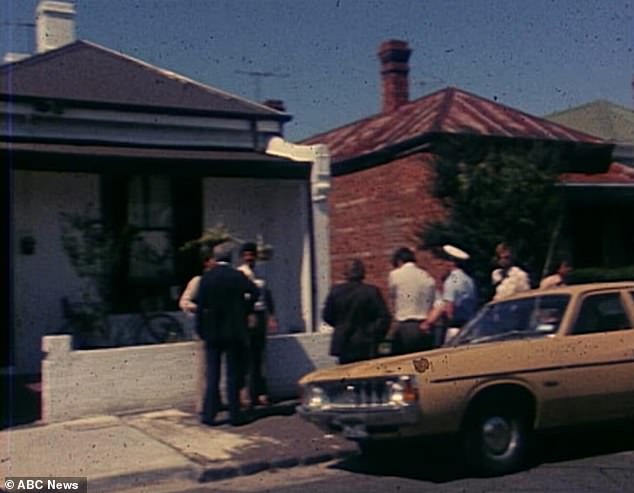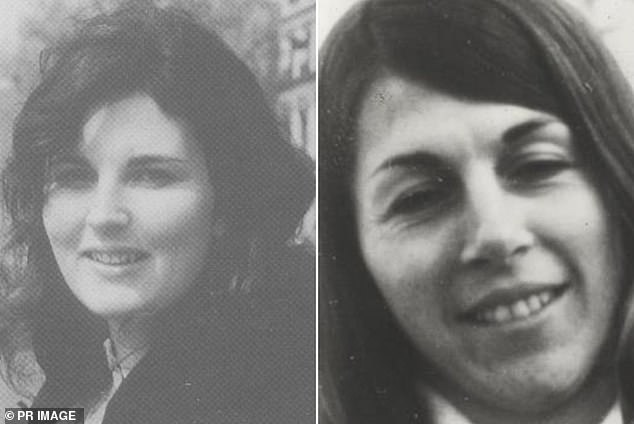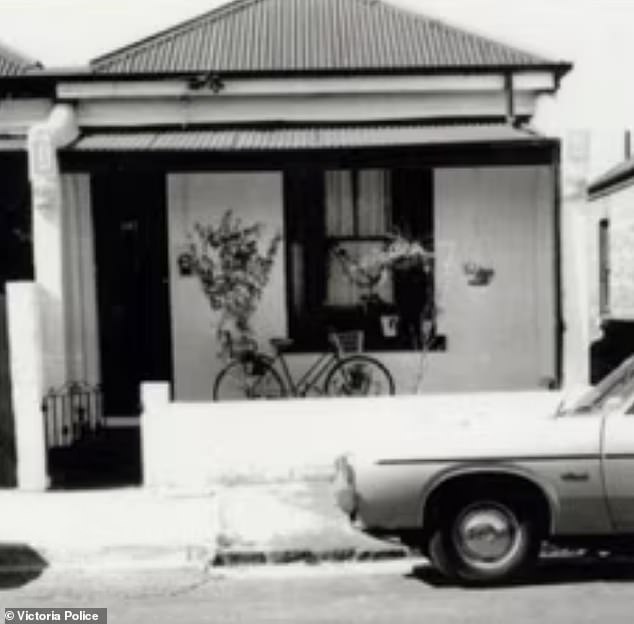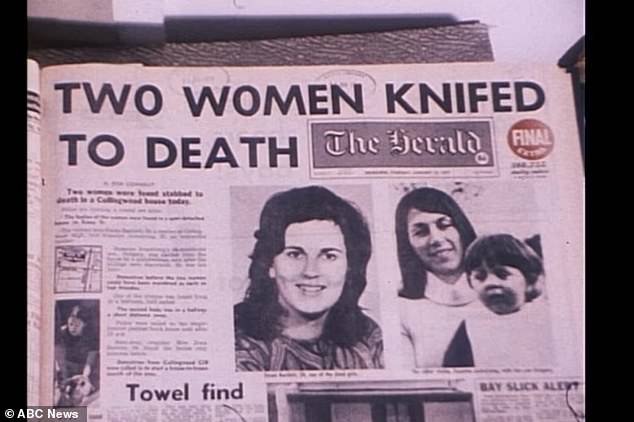How cops played a waiting game for the suspected Easey St double-killer – before an elaborate sting may have finally lured him out of his safe haven after decades on the run
Detectives assigned to solve the brutal 1977 murders of two women may have lured the suspect from his safe haven in Greece through a cunning deception.
Perry Kouroumblis was just 17 years old when Suzanne Armstrong, 27, and Susan Bartlett, 28, were found dead in their shared home on Easey St in Collingwood on January 13, 1977.
Kouroumblis, now 65, was arrested on Thursday over the killings that shocked Australia at Leonardo Da Vinci airport in Rome, Italy.
Police sources have told Daily Mail Australia they believe detectives in Victoria encouraged the alleged killer to leave Greece as he holds dual nationality there, as well as Australia.
“It’s actually a very good idea because it would have been almost impossible to extradite him from Greece,” one source said.
Australia has a good extradition treaty with Italy, so Kouroumblis’ Greek nationality will not stand in the way of his return to Melbourne.
But he was effectively untouchable in Greece, as local law prevented him from being extradited in connection with the 47-year murder hunt.
According to Donald Rothwell, a professor of international law at the law school, the alleged killer likely would never have been caught if he had remained in Greece.
The Easey Street murders turned Melbourne into a city of fear in the 1970s, as people knew their neighbours and left their front doors wide open at night

Perry Kouroumblis (pictured) was arrested at Leonardo Da Vinci airport in the Italian capital Rome over the killings that shocked Australia
“It appears the individual had some degree of immunity whilst in Greece,” he told the ABC.
‘There are two distinguishing factors here. Firstly, there is … a potential issue regarding the historical nature of these crimes and, in fact, a statute of limitations, which could be relevant in the context of Greek extradition law.
‘But the other information we have is that the person in question has dual Greek and (Australian) nationality.
“And some countries are very reluctant to even consider extraditing their own nationals. So those are two differentiating aspects that are not at play now.”
Last year, Australian investigators were suspected of luring a man to Australia for US investigators so they could extradite him.
Former US pilot Daniel Edmund Duggan has been given security clearance to obtain a pilot’s license and return to Australia from China to work in 2022.
A few days after his arrival, his clearance from the Australian Security Intelligence Organisation was withdrawn and he was arrested.
The former Marine was accused of illegally supporting China by training pilots for the state government’s military.
In May, a New South Wales court ruled he was eligible for extradition to the US and ordered the father of six to be sent to prison.

Life in 1977 was very different. Detectives are pictured outside the house on Easey Street where two people were murdered

Suzanne Armstrong (pictured) was murdered in the Melbourne suburb of Collingwood in 1977

Susan Bartlett (left) and Suzanne Armstrong (right) were murdered in their Easey Street home in Collingwood in 1977
In 1999, British police officers set a trap for 80 suspected criminals by sending them letters saying they had won valuable electrical equipment.
The operation, dubbed ‘Operation Bastille’, led to the arrest of 38 people wanted for failing to appear in response to a seizure order for alleged crimes.
The ‘prey’ were asked to call a toll-free winners line and confirm they would be home on the day their prizes were delivered.
According to The Guardian, almost three-quarters of those surveyed called the secret control room without realising the trap had been closed.
“We left the details of the prize to their imagination,” said Detective Bruce Ballagher.
‘People were so greedy that some were so excited that they tried to flag down the secret delivery vans before we arrived at their address.’
On Sunday, Victoria Police Chief Commissioner Shane Patton claimed he did not know why Kouroumblis made the mistake of leaving his safe haven.
‘As far as I know, there is a 20-year statute of limitations for filing a murder charge (in Greece).
“Our arrest warrant was not issued within that 20-year period, so we had to wait until he left Greece, if you like,” he told reporters.
‘I don’t know why the suspect was in Italy, or was passing through Rome.
“All I know is that the red alert worked, thanks to the orders that were there and thanks to the cooperation with Interpol.”
The Interpol red alert, which led to the suspect’s arrest in Italy, included two charges of murder and one charge of rape.
Mr Patton described the killings as “an absolutely horrific, horrific, insane murder”.
He said technological advances, investigative techniques and discovery of explanations had contributed to the breakthrough.

Neighbors raised the alarm after hearing a toddler crying in the house

A newspaper article about the deaths on Easey Street in 1977

Victoria Police Chief Shane Patton (pictured) described the killings as ‘an absolutely horrific, horrific, insane murder’
“This is the most serious cold case in Victoria and the longest cold case we have ever solved, which is why it is such a significant achievement,” the Chief Constable said.
“There is simply no expiration date for such heinous crimes.”
Police on Monday did not deny rumors that the organization had lured Kouroumblis from Greece, nor did they want to comment on the case.
Mrs. Armstrong and Mrs. Bartlett were last seen alive on January 10, 1977. Their bodies were found three days later.
Kouroumblis lived at the time in Bendigo St, Collingwood, close to the house where Ms Armstrong and Ms Bartlett were murdered in what later became known as the ‘Easey Street murders’.
On Sunday, it emerged that the then teenager had been arrested by a young police officer who had found a knife in the trunk of his car, which contained traces of the same blood group as one of the victims.
But when questioned, he claimed to have found the weapon on nearby railway tracks – a claim police initially accepted.
